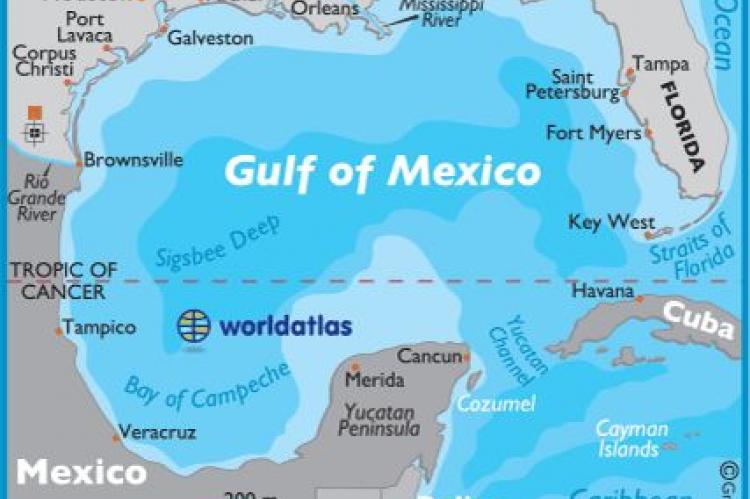The Gulf of America? Unpacking the Consequences of Renaming History
By: Omar Silva
Editor/Publisher: National Perspective Bz – Digital 2025
Belize City; 20th January 2025
In a bold and controversial hypothetical move, the incoming President of the United States is considering signing an executive order to rename the Gulf of Mexico as the "Gulf of America." While such a decision might appeal to nationalist sentiments domestically, its implications would ripple far beyond U.S. borders, sparking outrage, debate, and potential geopolitical consequences. This article explores the historical, cultural, and political dimensions of such a decision, and the likely reactions from Mexico, the region, and the global community.
Historical Significance and Cultural Heritage
The Gulf of Mexico carries centuries of historical and cultural significance. The name originates from Spanish colonial maps dating back to the 1500s and 1600s, reflecting the shared heritage of the Americas. Renaming it would be perceived as erasing this history and undermining the cultural legacy of Mexico and the other nations bordering the Gulf. This act would be akin to disregarding the contributions and histories of these nations in favour of an American-centric narrative.
Names are more than geographical labels; they are symbols of identity and heritage. Renaming the Gulf would be seen as an affront to the sovereignty and dignity of Mexico, one of America’s closest neighbours, and could strain bilateral relations.
Mexico’s Potential Response
Mexico is unlikely to accept such a change quietly. The renaming could provoke a strong nationalistic reaction, leading Mexico to assert its own historical claims. One provocative response might involve renaming parts of the Americas to reflect Mexico’s heritage, such as referring to the United States as "Mexican America," invoking the Treaty of Apatzingán of 1814 that declared Mexican independence.
Furthermore, Mexico could rally regional and international support to counter the perceived cultural imperialism of the U.S., uniting countries in Latin America and the Caribbean in opposition to this unilateral decision. This could serve as a rallying cry for stronger regional integration and collective action against perceived U.S. dominance.
Regional and Global Repercussions
Increased Isolation of the U.S.
Renaming the Gulf of Mexico would likely deepen global perceptions of the United States as a unilateral and arrogant power. Countries already critical of U.S. policies, particularly those in the Global South, could use this decision as a rallying point to strengthen alternative alliances, such as BRICS (Brazil, Russia, India, China, and South Africa). These nations are actively working to challenge U.S. dominance and advocate for a multipolar world.
Erosion of U.S. Soft Power
Soft power, the ability to influence through cultural and ideological appeal, is a critical tool for global leadership. However, actions perceived as culturally insensitive or imperialistic can erode this influence. Renaming the Gulf would likely alienate allies and partners, diminishing the U.S.’s standing on the world stage and reducing its ability to build coalitions on other critical issues.
Economic Backlash
Mexico and other nations bordering the Gulf are vital trade partners for the U.S. A strained relationship could lead to economic repercussions, such as reduced cooperation on trade agreements, environmental management, and regional security. The Gulf is a critical area for oil and gas production, fisheries, and shipping routes—industries that require collaborative governance.
A Symbol of U.S. Nationalism and Its Limits
Domestically, renaming the Gulf could appeal to nationalist segments of the population, symbolizing a reclaiming of America’s perceived dominance. However, such symbolism often comes at a high cost. Democracy thrives on respect for history, dialogue, and multilateralism. Actions that disregard these principles risk undermining the very values they claim to uphold.
Lessons from History: The Importance of Multilateralism
This hypothetical scenario underscores the importance of respecting historical and cultural legacies in international relations. Nations thrive when they embrace shared heritage and foster cooperation rather than unilateralism. As the world increasingly shifts toward multipolarity, with BRICS and other alliances challenging U.S. dominance, maintaining diplomatic goodwill and fostering collaboration will be crucial for sustaining global leadership.
Conclusion
Renaming the Gulf of Mexico as the "Gulf of America" might seem like a bold statement of nationalism, but it would come at significant diplomatic, cultural, and economic costs. The backlash from Mexico, regional partners, and the global community would likely outweigh any domestic gains, further isolating the United States on the world stage.
As global power dynamics evolve, the U.S. faces a choice: to double down on unilateral actions that alienate allies or to embrace multilateralism and shared leadership in a multipolar world. History and common sense suggest that the latter is not only wiser but essential for a sustainable and equitable global order.
The world watches and waits: what kind of democracy will the United States choose to reflect to the world?
- Log in to post comments

